The Galapagos Affair – True Crime
Back in 2014, Dayna Goldfine and Dan Geller shared with the world their documentary film titled ‘The Galapagos Affair: Satan Comes to Eden.’ This captivating documentary unfolds the remarkable saga of the very first settlers who landed on the Galapagos Islands during the 1930s. Their dream? To discover a pristine, untouched paradise on Floreana Island where they could lead a sustainable and blissful life in harmony with nature.
Floreana Island Today
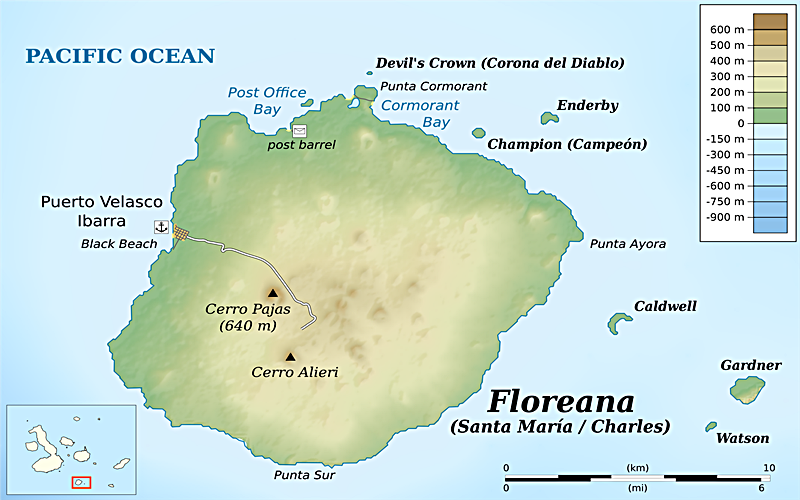


But as fate would have it, their reality turned out quite differently. Instead of the idyllic life they envisioned, they encountered a string of hardships, conflicts, and a series of bizarre events that ultimately led to tragic consequences. What makes this tale even more fascinating is that it’s entirely based on true events, and to this day, it remains a mystery waiting to be unraveled.
Dore Strauch was a teacher who believed her destiny lay beyond a life as the wife of an oppressive man and working under a much older headmaster. Dr. Friedrich Ritter, a dentist, sought to unravel the complexities of the human brain, feeling that civilization offered him little more. Fate intervened when Dore sought dental care from Friedrich, and in 1929, they abandoned their spouses and fled to Floreana, a remote, desolate island in the Galapagos where the reach of the state ended, and necessity ruled.
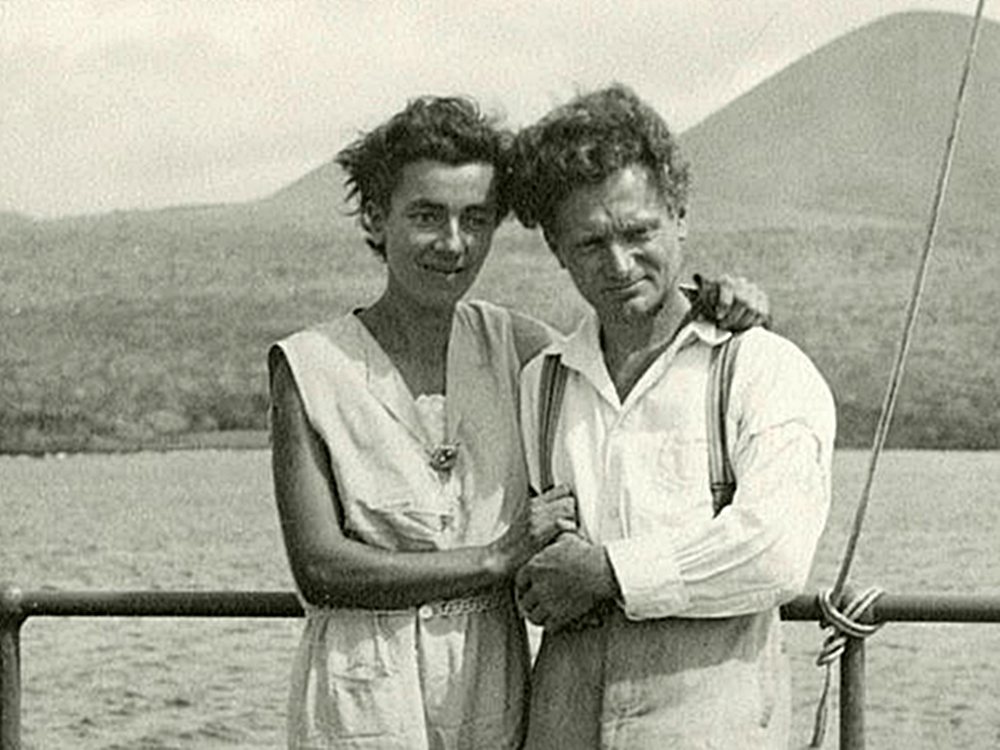
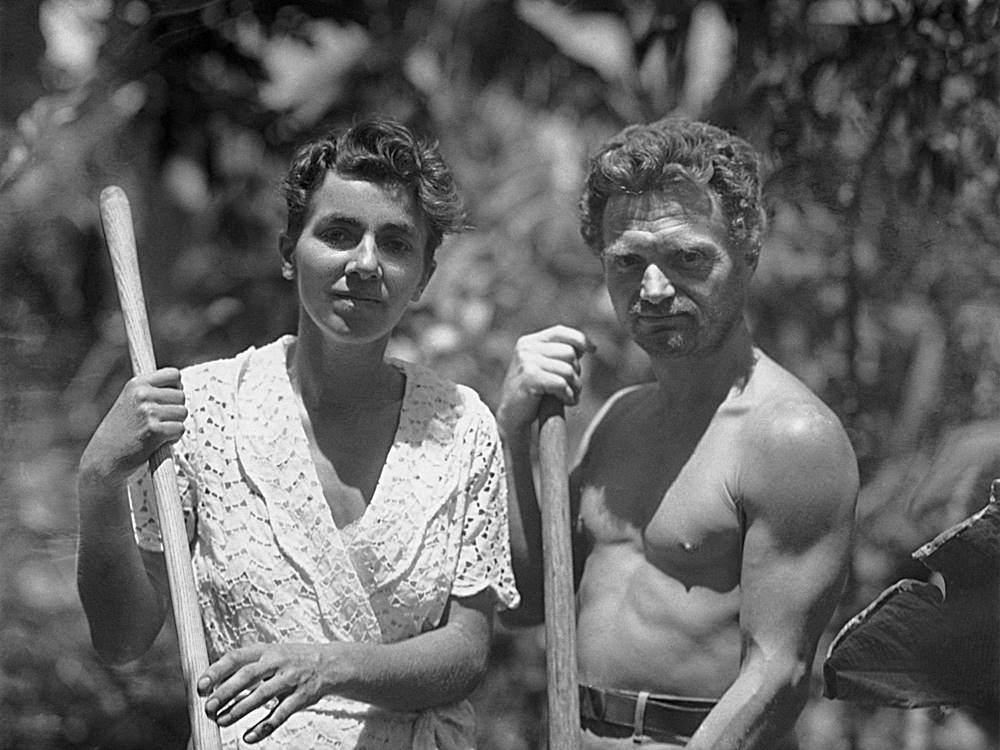
Upon arriving on Floreana, they found the island uninhabited, having thwarted numerous colonization attempts due to its limited fresh water supply. In preparation for their new life, Friedrich even extracted all his teeth to create a set of metal false teeth. Some reports suggest Dore followed suit, sharing a single set of false teeth with Friedrich, although no concrete evidence supports this claim. They embraced a nudist lifestyle, donning clothes only when visitors arrived, which became increasingly frequent as they gained international attention.
The couple constructed a corrugated iron hut within an extinct volcano’s green crater and cultivated an acre of land, successfully growing a vegetarian diet that sustained them. Their unconventional existence turned them into modern-day Adam and Eve, attracting worldwide fame—a stark contrast to their original intentions. People visited them regularly, occasionally with dreams of settling on the island, but the island’s harsh realities shattered those visions, prompting all visitors to leave with the next passing boat.
Explore Must-Read Books About Ecuador – Click Here!
In 1932, Heinz Wittmer, along with his pregnant wife Margret and their teenage son, arrived on Floreana, seeking refuge from post-war Germany’s turmoil. The Wittmer family, unlike others, possessed the knowledge, determination, and independence to endure the island’s hardships. They settled on the opposite side of the island from Friedrich and Dore, living in a cave initially. Although they occasionally visited each other, the Wittmer and Ritter families largely preferred isolation.

When Margret gave birth to her son Rolf in the cave, it marked the first recorded birth on Floreana Island. However, changes were on the horizon. A group of four, led by the self-proclaimed “Baroness” Eloise Wehrborn de Wagner-Bosquet, arrived on the island. The group included her two lovers, Robert Philippson and Rudolf Lorrenz, and Manuel Valdvieso, a handyman. The Baroness envisioned grandiose plans for the island, including a luxury hotel for wealthy guests. She invited yacht captains and select male passengers into her bed, even seducing the Governor of Galapagos, drawing yachts from across the Pacific.
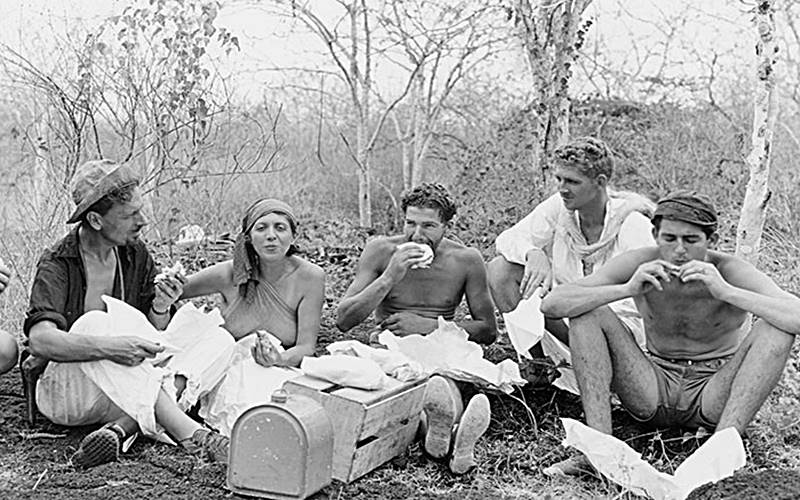
The Wittmers, now settled in a house and thriving despite the challenges, kept their distance from the Baroness and her entourage. Friedrich openly despised the Baroness and her plans, blaming her for disrupting their hard-earned lifestyle.
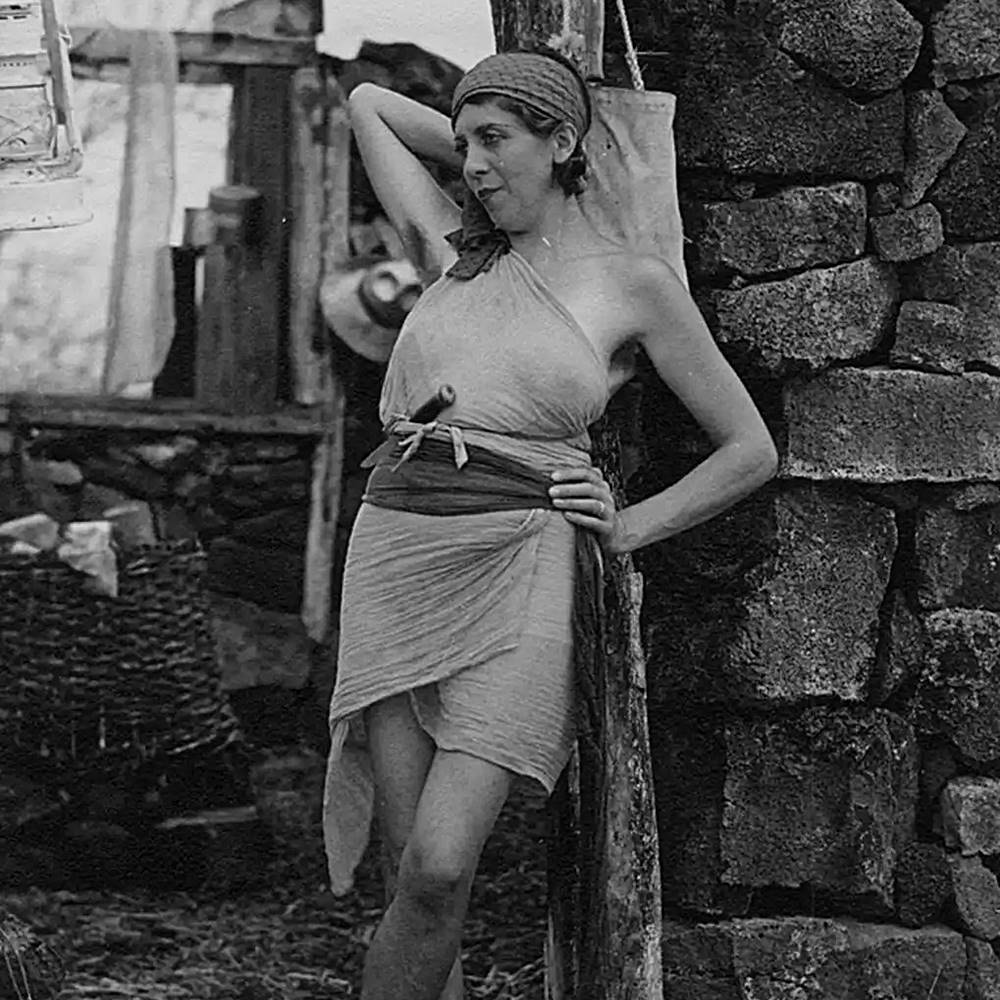
Trouble brewed as arguments escalated between the Baroness and her lover, Rudolf Lorrenz, who grew weary of her affairs. Lorrenz started spending time with the Wittmer family, further straining the relationship between the two families. A drought aggravated the already scarce freshwater supply, intensifying Friedrich and Dore’s disputes.
On March 27, 1934, the Baroness and Philippson vanished mysteriously and were never seen again. Margret Wittmer claimed the Baroness had informed her of their sudden departure for Tahiti. Still, no evidence or sightings supported this claim, casting doubt on its credibility. The Wittmers suspected Lorrenz of killing the Baroness and Philippson, burning their bodies, and disposing of the evidence.

The handyman Valdvieso managed to leave the island on the next passing boat. Lorrenz then persuaded a Norwegian fisherman named Nuggerud to transport him to Santa Cruz and eventually to Guayaquil. However, both men’s mummified bodies were later discovered on Marchena Island, a remote location unrelated to their intended route, raising further questions about their fate.

In November of the same year, Friedrich Ritter passed away, officially due to food poisoning from eating spoiled chicken. This raised suspicions, as Friedrich was a vegetarian who hadn’t consumed meat for years. Margret Wittmer hinted that Dore had poisoned him due to his worsening treatment of her in his final year. Their conflicting accounts of Friedrich’s death added to the mystery.
Dore Strauch: “Suddenly he opened his great blue eyes and stretched his arms towards me. His glance was joyously tranquil. He seemed actually to say to me: “I go; but promise you will not forget what we have lived for.” It seemed to be as if he would draw me with him. Then he sank back, and I began to caress his forehead tenderly. He became quite still, and that was death.”
Margret Wittmer: “Whenever she came near him, he would make feeble movements as if to hit or kick her. He looked up at Dore, his eyes gleaming with hate. [He] wrote his last sentence: “I curse you with my dying breath.” His eyes filled with a wild feverish flame. Dore shrieked, and drew back in horror. Then he collapsed soundlessly, falling back on the pillows. He had gone.”
With three deaths and two disappearances in a few months on a sparsely populated island, the “Galapagos Affair” garnered worldwide attention. The disappearance of the Baroness and Philippson, the mysterious deaths of Lorrenz and Nuggerud, and Friedrich’s unexplained demise continue to puzzle historians, police, and amateur sleuths since 1934.
Book A Tour With Ecuador Unlimited – Click Here!
Margret Wittmer lived on Floreana until her death in 2000, still residing on the island at the age of 96. She maintained her story that the Baroness and Philippson left for Tahiti, hinting that she knew more than she revealed, adding to the intrigue. Dore eventually returned to Germany, where she authored a book about their experience, offering insights into their hardships and the sordid events following the Baroness’s arrival. While she accused Lorrenz of murdering the Baroness and Philippson, she provided no concrete evidence, leaving the mystery unsolved.
The Galapagos Affair: Satan Came to Eden: full documentary
Today, no living witnesses possess knowledge of all the events on Floreana Island. Some mysteries, it seems, are destined to remain unresolved, adding a touch of intrigue to the world.
Want more?
Do Go On(Podcast) – 173 – The Baroness Of Floreana Island
The Baroness Of Floreana Island
In the 1930s German lovers Friedrich Ritter and Dore Stauch moved to the remote and uninhabited Floreana Island, hoping to leave society behind forever. All was going well but then another family arrived, hoping to share their island paradise and tensions flared. The final straw came when a mysterious woman claiming to be a baroness also turned up and claimed that she was going to build a hotel on the island. With the three parties all hating each other, it was only a matter of time before they clashed in a major way…
My Guess:
Considering the information at hand, I would venture to speculate that Lorrenz, the abusive boyfriend, and the Wittmers might have been responsible for their deaths.
As for the doctor’s demise, my hunch is that it could be linked to his peculiar diet. It seems like he might have struggled when transitioning back to eating meat or possibly had an aneurysm—though I’m not entirely certain if these events are directly connected to the Duchess’s death.


